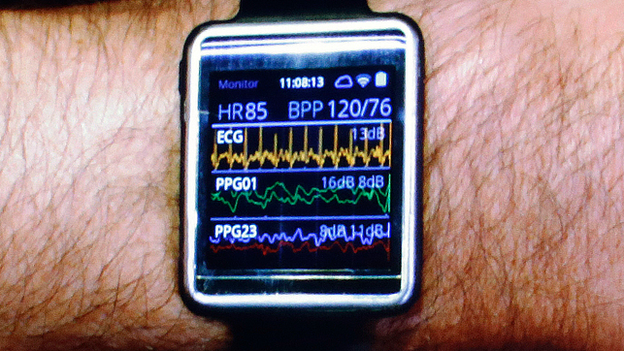Sleep sensor breaks through $1m on Kickstarter
- Published
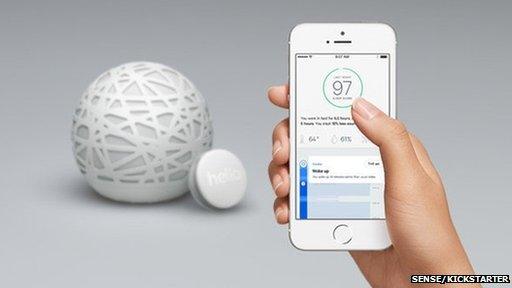
The device costs $99 and users can track their sleep quality on their phones
A 22-year-old British entrepreneur's new sleep-tracking kit has cracked $1.3m (£809,000) in its first week on Kickstarter's crowdfunding platform.
James Proud launched his product, Sense, on 23 July with a goal of raising $100,000 within 30 days, external.
But it passed the $1m-mark on Sunday, and has been forecast to raise more than $4m by the period's end.
Sense includes an orb that monitors the bedroom, a clip that attaches to the pillow, and a mobile phone app.
The equipment produces a unique score for the previous night's sleep and aims to wake the owner up at the best point in their sleep cycle.
It is due to be released in November and can be ordered in advance for $129.
Mr Proud said sleep was a natural area to focus on.
"We spend a third of our day doing it," he told the BBC.
"It's the most critical part of the day, as how we perform when we're awake depends on how well we slept."
Sense is one of a growing number of sleep-focused products as "smart" technologies start to filter into homes, offering new ways to track our health.
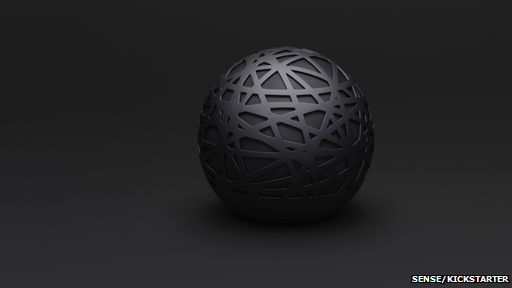
The Sense orb contains a microphone, proximity sensor and LEDs, which allow it to glow
Apps such as Sleep Cycle, Sleepbot and Sleepmaster are already used by iPhone, Android and Windows Phone users to track their slumber using sensors built into the handsets.
There are also specialist hardware devices such as Aura, from the French firm Withings, and a $8,000 "snore-stopping" bed.
Sleep tech sceptic
Earlier this year, Apple announced its forthcoming Healthkit app, which can gather sleep-related data from third-party devices. The 9to5Mac news site also reported the company had hired Roy Raymann, a Dutch sleep research expert, external, fuelling speculation the company may be about to release its own sleep-monitoring smart watch.
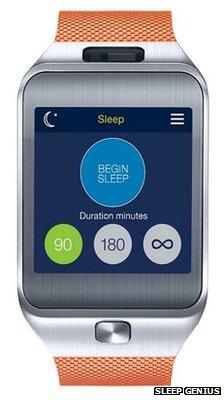
The Samsung Gear 2 smartwatch runs sleep-tracking apps
Its rival Samsung, already offers the Gear 2 smartwatch, which runs sleep-tracking software. And most recently, China's Xiaomi began selling one of the cheapest sleep-monitoring wearables on the market - the $13 MiBand.
But one expert told the BBC such products had limited use beyond "nagging" the user to go to bed earlier.
"If you want to learn whether you sleep on certain nights and not on others, then it should be looked at as a form of harmless entertainment," Prof Jerry Siegel from University of California, Los Angeles' Center for Sleep Research said.
"But the most common sleep problem is insomnia, and there's nothing that you're going to get from one of these devices that is going to be useful in treating insomnia.
"The other problem that is important to identify is sleep apnoea [a condition where the walls of the throat relax and interrupt breathing].
"We know that this will shorten your lifespan and we have several treatments... but none of these devices will help you detect it."
However, the US's National Sleep Foundation was more optimistic about the potential benefits of such innovations in May, when it announced a partnership, external with the US's Consumer Electronics Association to create new standards for sleep-related tech.
"We know that getting enough sleep and getting quality sleep have amazing health benefits, including improved mood, concentration, memory and productivity, and the ability to maintain a healthy weight," said David Cloud, chief executive of the foundation.
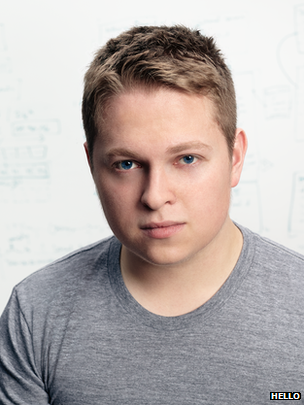
Mr Proud leads a team of San Francisco-based developers at his business, Hello
"Given the technology to properly monitor their own sleep quality, consumers can better understand the link between their sleep and their health, and set goals for improvement."
'Critical'
Mr Proud, was born in South London but developed Sense in California.
He took a gap-year break between school and university. "If I went to university, I quickly realised I couldn't code 18 hours a day," he told the BBC.
He ended up moving to California to take a "fellowship" from Peter Thiel, the co-creator of PayPal and one of the first people to put money into Facebook.
The move secured him a $100,000 grant to forgo higher education and instead build his own tech start-up.
The young entrepreneur raised more money and started Hello, the company that makes Sense.
Hello currently employs about 20 people, including engineers and product designers, who are responsible for its distinctive look.
"We wanted to make something that didn't look like technology, but that looked like it should be there regardless," said Mr Proud.
Sleep Number's hi-tech bed
He added that he planned to use the additional cash raised from Kickstarter to fulfil more orders and get the kit into the hands of more people.
Based on the amount of money the campaign has raised so far, the analytics site Kicktraq projects that Sense should raise between £4m, external and $7m by the end of its funding period.
But Mr Proud said he created the crowdfunding campaign not for cash but rather for feedback.
"The valuable thing about Kickstarter is the community," he said.
"The amount of feedback we've had is amazing, which we wouldn't have had if we had just put it up on our website."
- Published8 January 2014
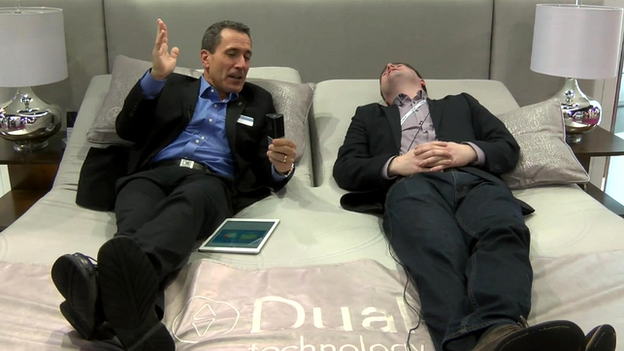
- Published5 June 2014
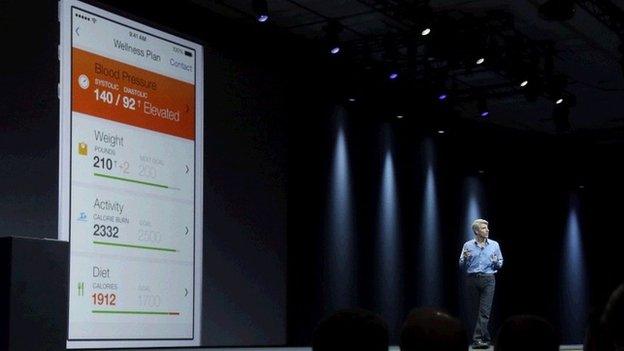
- Published28 May 2014
